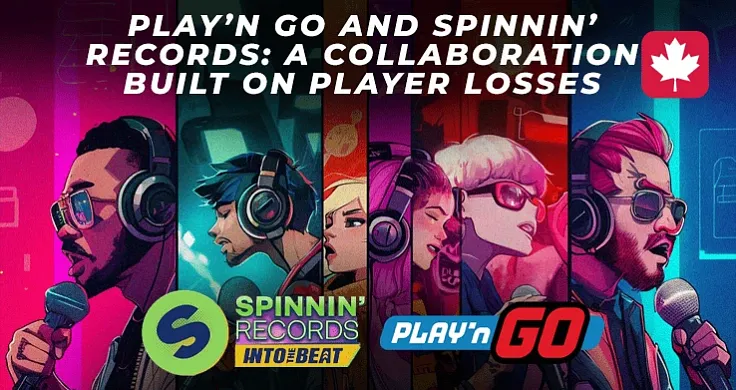
Play’n GO and Spinnin’ Records: A Collaboration Built on Player Losses
Once upon a time, players could check the RTP (Return to Player) of their favorite slots, but those days are long gone. Play’n GO, one of the biggest names in the casino gaming industry, has now shifted focus away from transparency and onto flashy collaborations—like their latest deal with Spinnin’ Records. Instead of addressing the growing concerns about reduced RTP and unfair gaming practices, the company is pouring money into partnerships, all funded by the hard-earned cash lost by players.
A Distraction from the Real Issues
Play’n GO claims this new partnership with Spinnin’ Records will “elevate” the music and gaming experience. But let’s be honest: this isn’t about creating a better product for players. It’s about selling a new batch of casino games dressed up with recognizable songs to keep the losses rolling in.
With the disappearance of publicly available RTP information, players have no way to verify whether these new slots offer fair chances of winning. And with casinos having full control over the payout rates, the odds are likely skewed against the players more than ever. Instead of ensuring fair play, Play’n GO is busy making noise—both literally and figuratively—to keep gamblers distracted from what really matters.
A History of Empty Promises
The company boasts about its experience in music-themed slots, citing past releases featuring bands like KISS, Motley Crue, and NSYNC. But what did those games actually change? Nothing. They were just another way to keep players spinning reels with no transparency on the real payout potential.
Now, they’re doing the same thing with EDM, using Spinnin’ Records’ name to promote games that will likely drain players' balances faster than ever before. Instead of ensuring fair play and player protection, Play’n GO is spending money on licensing music rights while quietly ensuring casinos can lower RTP rates without anyone noticing.
Where Is the Money Really Going?
This collaboration isn’t about innovation. It’s about using recognizable music to push a new line of slots while sidestepping the real concerns of the gambling community. Players should be asking: why is Play’n GO focused on partnerships instead of player protections? Why is RTP transparency no longer a priority? And most importantly, why should we trust a company that keeps making it easier for casinos to take our money while pretending to enhance the “experience”?
The answer is simple: they don’t want you to think about it. They want you to keep spinning, keep losing, and keep believing that a new soundtrack makes a difference. Spoiler alert: it doesn’t.





tickscollar All this bullshit was invented to squeeze out the last money. It used to be easier - bet on red, win or lose. And now some chickens are running, airplanes are flying... Circus.


xSuiZ The article is fire! Everything was laid out according to the facts. Drake is not a ludomaniac, he is a walking advertisement. And while the suckers believe in his "curse", Stake rakes in the money. Beautiful, you can't say anything. I've been riding a steak myself for a year now, I threw in crypto and generally don't give a about all the blocking.


Leoak Finally a good article on NC! I've been playing them since the very beginning, since the first Deadwood. Yes, their dispersion is crazy, you can lose a deposit in 100 spins. But when he pours ... It's worth it. In Mental x15k I caught, I still remember this spin. The whole point is in their x-mechanics, they really change the game, and not just for show.



tealblossom 2 minutes to respond? Yes, this is a dream! Otherwise, while you wait for these operators, you will already want to play. It's high time!





















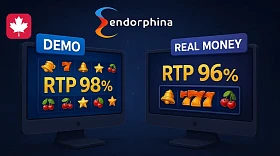

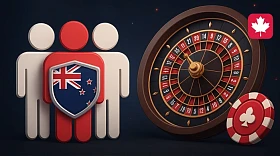


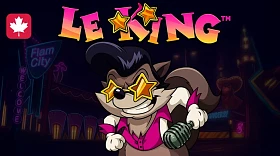


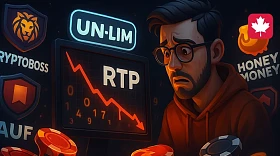















โปรทุนน้อย Slot Game Casino Online ยอดนิยมในไทย
I love music, but I love fair gaming more. If they really cared about the player experience, they’d focus on fair odds instead of music-themed distractions.
This is why I stick to crypto casinos. At least there, I can check provably fair games instead of blindly trusting these RTP-manipulating scammers.
Great, another excuse for them to dodge real issues. Lower RTP, hidden mechanics, and now they want us to dance while losing money faster? No thanks!
I used to respect Play’n GO, but this just proves they don’t care about the players. They’d rather make noise with EDM than be transparent about their slots.